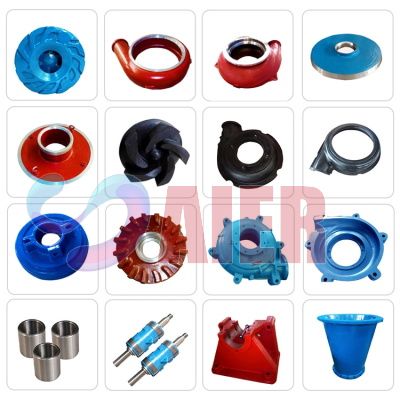Nov . 07, 2024 20:58 Back to list
Pump Solutions for Efficient Lime Slurry Transportation in Industrial Applications
The Significance of Pumps for Lime Slurry Factories
In the world of industrial processing, lime slurry plays a crucial role in various applications, ranging from water treatment to metal processing. Lime slurry, a mixture of calcium hydroxide and water, is essential for neutralizing acidity, purifying water, and stabilizing soil. One of the most vital components of a lime slurry factory is the pump system, which ensures that this mixture is handled efficiently and effectively. In this article, we will explore the importance of pumps for lime slurry factories, their types, and the factors to consider when selecting the right pump for this application.
Understanding the Role of Pumps in Lime Slurry Factories
Pumps serve as the heart of a lime slurry factory. They are responsible for transporting the slurry from one point to another within the production process, including mixing tanks, storage tanks, and delivery systems. The efficiency and reliability of pumps directly influence the overall effectiveness of the factory. An inadequate pump system can lead to downtime, production delays, and increased operational costs.
The fluid characteristics of lime slurry present unique challenges for pumping systems. Lime slurry is abrasive and can be highly viscous at times, leading to wear and tear on pump components. Therefore, selecting the right type of pump for these demanding conditions is critical for maintaining productivity and reducing maintenance costs.
Types of Pumps for Lime Slurry Applications
Several types of pumps are suitable for transferring lime slurry, each with its own advantages and disadvantages
1. Centrifugal Pumps These pumps are often favored in lime slurry applications due to their ability to handle large volumes of fluid at relatively low pressures. However, they may struggle with higher solids content and can suffer from wear due to the abrasive nature of lime slurry.
2. Positive Displacement Pumps - Diaphragm Pumps These are excellent for handling viscous and abrasive slurries. They are self-priming and can manage varying flow rates while providing a consistent output. - Gear Pumps Gear pumps are highly efficient but may not be the best choice for slurries with high solids content. They work well with lower-viscosity slurries and provide precise flow control.
3. Progressing Cavity Pumps This type of pump is ideal for pumping thick and viscous slurries. It can handle solid particles efficiently, making it suitable for lime slurry applications where solids can be present.
pump for lime slurry factories

Factors to Consider When Selecting Pumps for Lime Slurry
When choosing the optimal pump for lime slurry production, various factors must be considered
1. Slurry Properties Understanding the viscosity, density, and particle size of the lime slurry is crucial. This information will help in selecting a pump that can handle the specific characteristics of the slurry without excessive wear.
2. Flow Rate Requirements Different production processes require varying flow rates. It is important to determine the required flow rate to ensure that the selected pump can meet production demands.
3. Pump Material The abrasive nature of lime slurry necessitates using durable materials for pump construction. Common materials include stainless steel, special alloys, and ceramics which can withstand corrosion and wear.
4. Energy Efficiency Energy-efficient pumps not only reduce operational costs but also contribute to environmentally sustainable practices. When selecting a pump, consider its energy consumption and performance efficiency.
5. Maintenance Needs The complexity of maintenance can vary between different pump types. Opting for pumps with easy maintenance features can lead to reduced downtime and lower operational costs.
Conclusion
Pumps play a critical role in the efficiency and effectiveness of lime slurry factories. With the proper selection of pump types and consideration of factors such as slurry properties, flow rate, and maintenance needs, factories can optimize their production processes. By investing in the right pumping solutions, lime slurry manufacturers can ensure consistent quality, reduce costs, and maintain high productivity levels. In an industry where reliability and efficiency are paramount, the significance of the right pump cannot be overstated. Understanding the specific needs of lime slurry applications will be key in driving operational success in this critical sector.
-
Wholesale Slurry Pump Closed Impeller Supplier High Efficiency China Slurry Pump Closed Impeller
NewsJul.06,2025
-
High Quality Warman Slurry Pump Drawings Supplier & Factory Reliable Customization
NewsJul.06,2025
-
China SP Slurry Pump Supplier – Vertical Sump Pump Rubber Lined Manufacturer & Factory
NewsJul.05,2025
-
High Quality Submersible Slurry Pump with Agitator Manufacturer & Factory Reliable Submersible Pump Solutions
NewsJul.05,2025
-
Cheap Dredge Pump for Sale – China Cheap Submersible Pump for Wastewater Supplier
NewsJul.05,2025
-
Wholesale Casting Dredge Pump Part - High Quality China Manufacturers & Suppliers
NewsJul.04,2025
